#moral complexity
Explore tagged Tumblr posts
Text
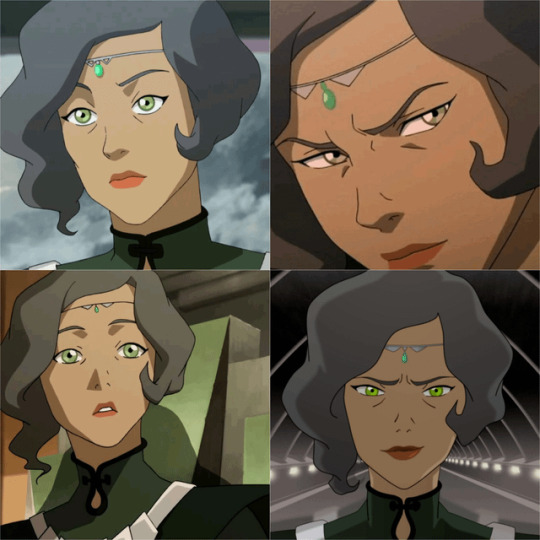
People always say they want complex characters. They ask for nuance, for gray areas, for emotional depth and realistic growth. But when a character starts feeling too real, so much so that they stop acting like someone in a story and start feeling like someone you could actually meet – that's when the discomfort kicks in. That's when admiration often turns into criticism. And very few in The Legend of Korra walks that tightrope quite like Suyin Beifong.
Su doesn’t follow the typical “lesson of the week” formula. She doesn’t get handed a tidy moment of reckoning, followed by an instant transformation. Her arc isn’t flashy or obvious. It’s slow, subtle, and sometimes contradictory. Just like real people. Because the truth is, most of us don’t change overnight. We grow a little here, slip back there. We learn something, but that doesn’t mean we always apply it in every situation. That’s Suyin in a nutshell.
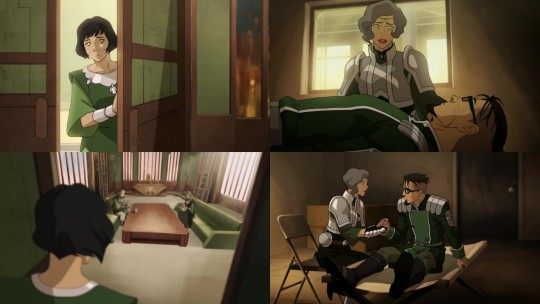
Look at how she changes as a mother. At first, she tries to micromanage Opal’s choices out of fear, mostly, and a need to protect her. But eventually, she lets Opal go and lets her live her life without trying to control her path. That’s a win. That’s real growth. But then Baatar Jr. betrays the family, and Su reacts by putting him under house arrest. It’s easy to point at that and call it hypocrisy, but that misses the bigger picture. Her deepest fears for her kids came true with Baatar, and so, of course, she tries to regain some kind of control in the aftermath. And yet, she doesn’t try to rope Opal back in. She lets her stay free. That shows her earlier growth wasn’t erased, just complicated by pain.
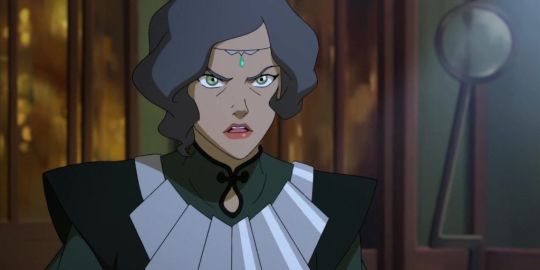
This is the part people tend to ignore. They rush to call her a hypocrite without stopping to think about what hypocrisy really is. People are full of contradictions. We want conflicting things. We act on emotion. We stumble. We grow unevenly. No one is morally consistent all the time. Su isn’t some moral failure she’s just human. And that’s what unsettles people. They want characters who get what’s coming to them or learn the “right” lesson. But Su doesn’t fit into that framework. She just keeps going, flaws and all.
That’s also what makes her so compelling. She’s not a straightforward hero or a satisfying villain. She’s a complicated woman trying to balance power, family, control, and identity in ways that are messy and real. When people critique her, it’s often not because she doesn’t make sense, but because she makes too much sense.
She’s too familiar. Too human.
Everyone says they want nuanced characters... until they’re faced with someone like Suyin. Someone who holds up a mirror. And when that reflection hits a little too close to home, people tend to look away. But it’s in that raw honesty where her character really shines.
#legend of korra#suyin beifong#avatar the last airbender#lok#pro suyin beifong#we love and support suyin#we asked for a realistic female character#and got really upset we got one#nuance is important#nuance is also dead#fandom be normal about complex female characters challenge (impossible)#critical thinking#moral complexity#let's normalize steady and imperfect growth media#earth kingdom#zaofu#motherhood#opal beifong#baatar jr#such an underrated character#character arcs#character analysis#character development
108 notes
·
View notes
Text
Trauma Doesn’t Equal Narcissism and Alina Starkov Isn’t the Villain You’re Looking For
It’s interesting how often discussions of Alina’s trauma responses turn into clinical diagnoses, while the Darkling’s suffering is framed as tragic depth. The truth is, both characters are fractured by their pasts, they simply fracture differently.
First Alina’s defensiveness isn’t narcissism. It’s the scar tissue of a life where being vulnerable got her hurt. Her need for boundaries, her refusal to be shaped into someone else’s weapon or saint, that’s not arrogance, it's survival. She learns slowly and painfully, that her worth isn’t tied to being useful or adored.
The Darkling, by contrast, is often framed as “morally complex” when his trauma leads him to manipulate, coerce, and destroy. But his cruelty isn’t depth, it’s despair turned into control. After centuries of loneliness, he stops seeing people and starts seeing tools. Where Alina resists being used, he clings to using others as the only form of connection he understands.
What makes their dynamic so tragic is that they both want to be seen. Alina wants freedom and meaning. The Darkling wants a mirror. And when she won’t reflect back what he needs, he breaks the glass.
1) No one is saying teenagers are above critique, but let’s be honest about the double standard
Alina’s behavior is framed here as “selfish, insecure, entitled, self-righteous,” all while being a traumatized 17-year-old pulled into a war she didn’t start. Meanwhile, the Darkling who literally expands a shadow wasteland, murders innocents, and manipulates her is mourned as a tragic, lonely soul “just looking for connection.”
Why is his trauma poetic while Alina’s is pathologized?
It’s a gendered double standard, powerful men are viewed as complex antiheroes even when they cause mass suffering, while young women navigating power are judged for every misstep. When the Darkling seizes control, it’s “a symptom of centuries of grief.” When Alina resists that control, it’s “entitled.”
Her “victim complex” is mentioned with disdain. But what else do you call someone raised in poverty, orphaned by war, neglected by their caretakers, and then elevated to sainthood against her will? She doesn’t ask to be worshipped. She actively resists it. Her choices may be flawed, but they come from a desire to do the right thing, not to dominate.
Calling that narcissism isn’t nuanced, it’s lazy.
2) Narcissistic traits aren’t just pulled from a childhood bingo card
The argument that Keramzin is a “perfect breeding ground for narcissists” because it was emotionally repressive is deeply reductive. Trauma can absolutely lead to unhealthy behaviors. But it can also lead to resilience, boundaries, and clarity, which is exactly what we see in Alina.
She challenges power: Baghra, the Darkling, even Nikolai. She isn’t “blindly loyal” to anyone. Her trust in Baghra stems from shared vulnerability, and when Baghra falters, Alina recalibrates in Ruin and Rising.
Mal is part of her story, not the author of it: And for those who claim she has “Mal tunnel vision,” let’s be clear, Mal is important to her, yes. He’s her last tie to a life before all this chaos. But her arc doesn’t revolve around him. She actively hides her power from him at first, not to protect his feelings, but because she’s not ready to confront what it means for her. She breaks away from him emotionally in Siege and Storm, choosing to embrace her role as a leader, even when it drives a wedge between them. She takes control of the Second Army, plots military strategy with Tamar and Tolya, and challenges Nikolai’s vision of her as a saint-queen. None of that is about Mal. And when the final sacrifice comes in Ruin and Rising, she doesn’t make it for Mal, she makes it for Ravka. For the people she’s come to protect. For the country that demanded her light and gave her nothing in return.
She isn’t obsessed with status: She hates the material excess of the Little Palace and pushes against being used as a symbol.
She actively makes sacrifices: Losing her powers, rejecting immortality, nearly dying.... if she were self-obsessed, she’d have stayed powerful, adored, and worshipped.
3) “But the narrative rewards her!”
With what? A burnt-down orphanage and the boy she loved resurrected as a quiet farmer? Her final arc is about letting go of power, fame, and even identity. She isn’t held up as flawless. In fact Zoya, Tamar, Nikolai, even Mal criticize her repeatedly throughout the trilogy. She doubts herself constantly. Siege and Storm is an entire book about her losing control, losing allies, losing herself.
If that’s “rewarding narcissism,” then I'm the Queen of Ravka...oh wait, that's Zoya because somebody gave up the throne to rebuild and live in an orphanage caring for children displaced by the war.
4) You’re allowed to dislike Alina, but you don’t get to pathologize her for it
You can find Alina annoying. You can think her choices were bad. That’s fair. But diagnosing her with narcissism while mocking the author’s writing and dismissing the actual text, isn’t literary analysis., it’s projection dressed up as critique.
It’s especially ironic that people who celebrate “grey morality” in the Darkling suddenly demand moral perfection from a teenage girl.
The narrative doesn’t reward Alina, it punishes her with impossible choices. Nor does it absolve the Darkling, it drowns him in the consequences of his own despair.
In the end their stories are bound by the same truth, that power reveals, but never redeems. Alina walks away from hers, not because she's the perfect "saint", but because she is human. The Darkling clings to his, not because he is evil, but because he has forgotten how to be anything else. That is the real lesson here, not a morality tale, but a mirror. It's who they become, the cost of survival, the limits of forgiveness, and the act of choosing to be more than what your pain made you.
#alina starkov#shadow and bone#the darkling#grishaverse analysis#moral complexity#DoubleStandardsInFiction
8 notes
·
View notes
Text
Anyone else just so sick of arguing their side of things? Like yeah, I'm opinionated as hell. Yes, I have sufficient research and arguments for the things I believe to be true, I challenge my own beliefs regularly and I discuss them regularly with myself, my friends, family, and the divine. So don't argue with me :/
I have ADHD, and I fucking love arguments. Or at least I used to. But I feel like recently, with the absolute overload of information about the world and politics, and my own family drifting further and further down the alt-right pipeline, I've gotten so tired of it. I don't want to have to defend basic human rights against the ignorant stupidity of people who just don't get it. I've argued all my life, and I'm tired. So tired.
I get such dopamine hits out of arguing...but these days, I avoid it. I shut down difficult topics as soon as they emerge in conversation. I've got my stance on things, and I no longer need outward validation for them. I remember realizing for the first time that my need to argue about all of my opinions comes from the subconscious belief that if other people don't come to the same conclusion as me when presented with all of the evidence, then I must somehow be wrong (this was stupid of me to believe, and I blame it on autism).
Turns out, people will outright refuse to look at the evidence, or approach it with a bias of hate or intolerance, and therefore have wildly different views on topics than me. And I am sick of trying to make people apply logic and reason. I'm tired of explaining the same things over and over again.
I think that big part of that was what I've been talking about with lord Bael. Some things just don't deserve a reaction. I expected him to teach me about war, and the first thing he taught me was how to avoid it. Which is really helpful. Can recommend it.
If feeling indifferent to people's stupid fucking claims is what it means to mature, then I am so fucking ready to become the maturest of all people. Take me already, maturity. People are so boring, they all repeat the same, stupid patterns. No one is interested in having real conversations where the outcome is open. People will not change their minds. I can change nobody's mind until they decide to wake up themselves. I only argue with my own reflection these days, it has some really interesting takes for me to consider.
8 notes
·
View notes
Text

"Love is madness, but maybe madness is the only thing that makes sense." — Butcher & Blackbird

Some people love softly. Others love like a blade to the throat.
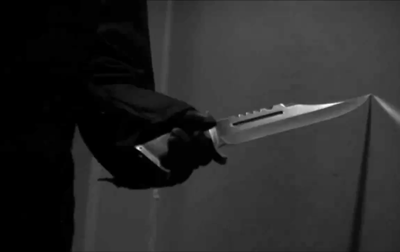
#butcher and blackbird#brynne weaver#dark romance#literary aesthetic#thriller books#villainous#love in the dark#dark academia#moral complexity#book quotes#booklr#dpr ian#so beautiful#Spotify
19 notes
·
View notes
Text
I don't think it's a revolutionary take on this site to point out that the Walter guy from Breaking Bad isn't exactly a saint. Sexual assault, blowing up several buildings, manipulating most of the people around him, the list goes on...
That having been said, I still get very annoyed by Breaking Bad fans who cannot fathom the concept of him having vaguely redeeming qualities. Like I swear to god, they need to read EVERY SINGLE decent thing he does in the least favorable light imaginable.
Walt goes to rescue Jesse from the slums - "It's akshually because his pride is insulted by Jesse being in such a place."
Walt risks his life and ruins his entire relationship with Gus to save Jesse - "Walt only did this to calm his own guilt!!"
Walt offers Jack all 80 million dollars of his money to save Hank - "It was akshually just to preserve his self-image as a family man, his ego couldn't handle anything else!!!"
You could do the exact same shit with Jesse or Mike, but because they're the fanbases 'UwU softboys' they escape this treatment.
And NO, for the record, this does not mean i think every character in Breaking Bad is on the same level morally. Waltuh's absolutely a darker shade of grey, it's just worth remembering that there is more to the guy than just 'evil super abuser who consistently hates everyone other than himself".
#walter white#jesse pinkman#mike ehrmantraut#breaking bad#moral complexity#pride#character analysis#fandom discourse#fandom
25 notes
·
View notes
Text
Moral complexity is when a character does bad things but they are also hot
5 notes
·
View notes
Text
The Oppressor/Oppressed Lens: A Moral Tool That Falls Short, (Part 1)
In today’s polarized world, the oppressor/oppressed lens shapes how we talk about morality, justice, and power. From social media to workplaces, this framework—dividing society into oppressors (those with power) and oppressed (those without)—is often used to judge right from wrong. It’s a powerful tool, rooted in the struggles of marginalized groups, but is it enough to guide our moral decisions…

View On WordPress
#Combahee River Collective Statement (1977)#Kimberlé Crenshaw’s “Mapping the Margins” (1989)#Moral Complexity#Paulo Freire’s Pedagogy of the Oppressed (1970)#Peter Roberts’ “Paulo Freire and the Politics of Education” (1999)#The Oppressor/Oppressed Lens
0 notes
Text
different ways characters navigate moral ambiguity by genre
Crime Fiction:
Corrupt cop making dirty deals to catch worse criminals Vigilante justice outside the law Breaking rules to protect family Using criminal skills for good Evidence tampering to ensure justice Illegal means to stop greater evil
Fantasy:
Dark magic use for noble ends Assassination for greater good Breaking sacred laws to save realm Deal with evil forces to gain power Sacrifice innocents to save many Betraying oaths for right cause
Literary Fiction:
Affair to escape abusive marriage Theft to provide for family Lying to protect loved ones Revenge vs forgiveness choice Choosing between duty and desire Sacrifice one to save many
Horror:
Making deals with dark entities Becoming monster to fight monsters Human sacrifice for greater purpose Trading others' lives for survival Using forbidden knowledge Embracing evil to prevent worse evil
Sci-Fi:
Genocide to save human species Breaking AI directives for humanity Time paradox murder prevention Playing god with genetic engineering Sacrificing few for space colony Breaking laws of robotics for good
#moral ambiguity#anti hero#moral choices#ethical dilemmas#grey morality#complex characters#darker choices#morally grey#survival choices#necessary evil#moral complexity#difficult decisions#ethical choices#moral relativism#questionable means
0 notes
Text
Moral Ambiguity in Fantasy: Why Readers Love Complex Characters
Remember when fantasy was simple? Heroes wore white, villains wore black, and you could spot the evil one by their conveniently twisted features. But modern readers crave something messier, more honest. We want characters who live in the shadows between right and wrong, because that’s where real people dwell. Soren’s Journey in Guild of Assassins My novel Guild of Assassins illustrates this…
#character depth#Character Transformation#complex characters#dark fantasy#fantasy conflict#fantasy relationships#fantasy storytelling#Good vs Evil#grey area fantasy#Guild of Assassins#loyalty in dark fantasy#modern fantasy#moral ambiguity#Moral Complexity#morally ambiguous heroes#morally complex narratives#Morally Grey Characters#revenge in fantasy#Soren character arc
0 notes
Text
Reassessing Trujillo’s Motivations
Was Rafael Trujillo’s offer to shelter Jewish refugees during WWII truly compassionate? Explore the complex motives behind his “humanitarian” act, from racial agendas to image repair. #UnmaskingTrujillo #HistoryExplored #SosúaSettlement #JewishRefugee
Part 4: “A Double-Edged Deed: Was Trujillo’s Offer to Jewish Refugees Truly Altruistic?” At first glance, Rafael Trujillo’s offer to shelter Jewish refugees fleeing Nazi persecution seems compassionate. It seems like an act of profound humanity. Yet, as we peel back the layers of his motivations, a more morally ambiguous picture emerges. His decision to allow Jewish refugees into the Dominican…
#Dominican dictator#Dominican Republic history#hidden agendas#Historical Analysis#humanitarianism in politics#Jewish refugees#moral complexity#political ethics#racial motives#Sosúa settlement#Trujillo’s motives#WWII refugees
1 note
·
View note
Text
Ratonhnhaké:ton: Growth and Autonomy
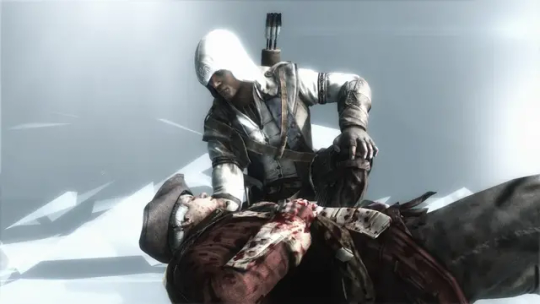
"Connor comes across to me as an incredibly naive character." "People will just tell him someone is a bad guy and he’ll go murder the person, no questions asked. He has almost no autonomy."
While I understand why people within the fandom believe this, these interpretations only overlook critical aspects of Connor’s character. His perceived naivety is not a flaw—it’s an intentional feature of his narrative. Connor begins the story as a young man thrust into a complex, unfamiliar world filled with conflicting beliefs and customs. His arc centers on navigating this chaos and growing into someone who balances idealism with hard-earned wisdom. Far from being a passive or blindly obedient character, Connor demonstrates remarkable autonomy and moral depth throughout his story. Take, for example, his approach to William Johnson. Connor doesn’t immediately kill him when faced with Johnson’s plans to purchase native land. Instead, he undermines Johnson’s efforts through the Boston Tea Party, attempting a peaceful resolution rather than resorting to violence.

Sequence 6: Hostile Negotiations (transcript)
Kanen'tó:kon: William Johnson has returned - with all the money required to buy our land. He meets with the elders as we speak. I have begged them to resist. But I fear he shall have his way unless you intervene. Connor: How is this possible? We destroyed the tea. Achilles: The Templars are nothing if not resourceful. You should have heeded my warning.
Even when circumstances force Connor to kill Johnson, it’s a reluctant act, filled with regret and a deeper understanding of the moral weight of his decision.
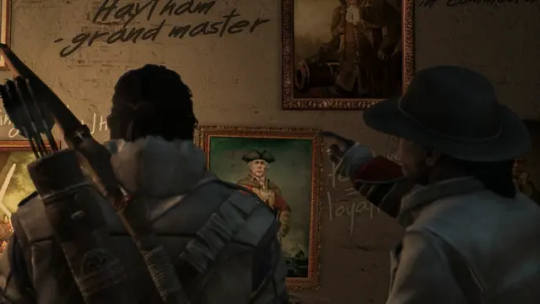
Sequence 7: The Midnight Ride (transcript)
Connor: I thought it might bring clarity. Or instill a sense of accomplishment. But all I feel is regret. Achilles: Hold fast to that. Such sacrifices must never come lightly. Connor: I had to do it. Not only for my people, but for all the others Johnson would have harmed.
This is not the behavior of someone who acts without thought or autonomy. Similarly, his handling of Thomas Hickey reflects his nuanced morality; rather than simply assassinating Hickey, Connor attempts to bring him to justice by exposing his counterfeit operation and putting him in jail. This demonstrates Connor’s preference for justice over killing whenever possible—an uncommon trait among Assassins.

Connor’s journey also includes grappling with the conflict between the Assassins and Templars. He openly considers the possibility of peace and collaboration between the two factions, particularly during his time with Haytham. This introspection and willingness to challenge the status quo are unprecedented for an Assassin. No other protagonist in the series has or since entertained the idea of reconciliation with such sincerity and depth.
Sequence 10: Alternate Methods (transcript)
Connor: But now their hold is weakened, which makes me believe there's a chance for peace. Imagine what might be accomplished if we were to unite. Achilles: Why the change of heart? Where is this coming from? You've met your father, haven't you? Connor: I do not claim to trust the man—or even like him. But I would be remiss to ignore this opportunity. Achilles: Haytham may listen. But will he understand? And even if he does, will he agree? Connor: Even he must admit that we achieve more together than we do alone.
His independence is further showcased in his relationship with Achilles. Connor often defies his mentor, such as when he reveals the truth about the Assassins and Templars to George Washington, acting on his convictions rather than blindly following orders.
Even in his most emotionally charged moments, Connor’s actions are driven by a thoughtful moral framework. After discovering Washington’s role in burning his village, Connor doesn’t abandon the Patriot cause out of bitterness. Instead, he chooses to support their fight one last time—not because they are perfect, but because he believes freedom, despite its flaws, is preferable to the Templars' control.

Sequence 10: Broken Trust (transcript)
Connor: You seem to think I favor him. But my enemy is a notion, not a nation. It is wrong to compel obedience—whether to the British Crown or the Templar Cross.
Connor’s story isn’t about blind loyalty or unchecked naivety. It’s about growth, introspection, and the struggle to uphold one’s values in an imperfect world. His choices reflect a level of autonomy and moral complexity that sets him apart, making him one of the most layered characters in the Assassin’s Creed series.
#assassin's creed#connor kenway#ratonhnhaké:ton#assassin's creed 3#haytham kenway#achilles davenport#george washington#charles lee#william johnson#thomas hickey#moral compass#moral complexity#growth#connor ac3#ac3
58 notes
·
View notes
Text
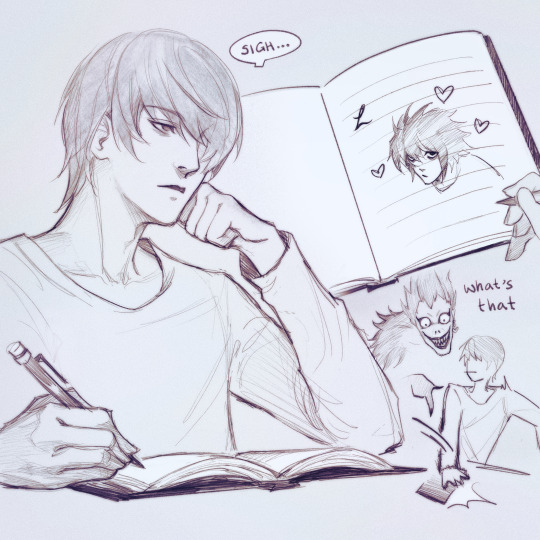
sketched this out at jury duty actually
#i sat there for eight hours and wasn't called at ALL. even for selection >:(#death note#light yagami#l lawliet#lawlight#i don't ship them that hard tbh#i just like to cheer for classic yaoi as i'm rewatching this series#yippeeeeeee love at first sudden-death mind game 🎉🎉🎉#edit: omg multiple ppl have pointed out the hand (positively)...#i've been wondering why it's getting so much attention... it's probs bc i over-rendered it since i was worried it looked bad LOL#edit 2 months later: i'm glad DN is still enjoyed by so many people!! it's rly nice to see 😭#also i saw notif for a reply that started with “shipping light with L while the former is only-” but it doesn't show up under the post#so i can't read the rest... tumblr saving me from something vile truly. i assume it's about age#btw this character is a magical serial killer#like be fr LMAO i think there might be other issues here!!#the elitist morally bankrupt 17 y/o murderer with a god complex can have a little crush#as a treat <3
8K notes
·
View notes
Text
Navigating the Shades of Morality
Embracing Our Humanity Through Spiritual EvolutionIn the labyrinth of human experience, we often find ourselves at a crossroads between contrasting moral landscapes. This journey, fraught with myriad complexities, guides us through a transformative process—a shift from seeing the world in stark contrasts to embracing the nuanced shades of morality that define our existence. It’s a journey that…

View On WordPress
#Compassion#Empathy#Human Experience#Moral Complexity#Morality#Psychological Development#spiritual awakening#Spiritual Evolution
1 note
·
View note
Text
💀 Making Your Villain Make Sense (Without Making Them Right™)
("because if I see one more war criminal with a sad diary entry get a redemption arc, I’m gonna throw my laptop.")
Here’s the thing: your villain doesn’t need to be redeemable. But they do need to make sense.
And I mean sense beyond "they’re evil and they monologue about it." Or “they have a tragic past, so now they do murder <3.” Or “they were right all along, the hero just couldn’t see it 🥺.”
Let’s fix that.
─────── ✦ ───────
🧠 STEP ONE: BUILD A LOGIC SYSTEM THAT ISN’T OURS Your villain shouldn’t just be wrong, they should have their own internal system that works for them. Morally flawed? Absolutely. But coherent.
Ask yourself:
What do they value more than anything? (Power? Order? Loyalty? Vengeance?)
What do they believe about the world, and how did they get there?
What fear drives them? What future do they think they’re trying to prevent?
The villain doesn’t need to know they’re wrong. But you should.
Make their logic airtight. even if it’s awful. Give them cause and effect.
─────── ✦ ───────
👿 STEP TWO: STOP GIVING THEM THE BETTER IDEOLOGY Listen. I love a “morally gray” moment as much as anyone. But if your villain is making all the good points and the hero’s just like “no because that’s mean,” your arc is upside down.
If your villain is critiquing injustice, oppression, or inequality, make sure their methods are the problem, not their entire worldview.
✖︎ WRONG: Villain: “The ruling class is corrupt.” Hero: “That’s not nice.”
✔︎ RIGHT: Villain: “The ruling class is corrupt, so I’m burning the city and everyone in it.” Hero: “So you’re just… committing genocide now?”
Your villain can touch a real issue. Just don’t let them be the only one talking about it, or solving it with horror movie logic.
─────── ✦ ───────
🔪 STEP THREE: GIVE THEM POWER THAT COSTS THEM The best villains lose things too. They’re not just untouchable horror dolls in sexy coats. They make bad choices and pay for them. That’s where the drama lives.
Examples:
They isolate themselves.
They sacrifice people they love.
They get what they want, and it destroys them.
They know they’re the monster, and choose it anyway.
If your villain can kill a dozen people and feel nothing, that’s not scary. That’s boring. Let them bleed. Let them regret it. Let them double down anyway.
─────── ✦ ───────
🧱 STEP FOUR: MAKE THEM PART OF THE WORLD, NOT OUTSIDE IT Villains shouldn’t feel like they were patched in from another genre. They should be part of the world’s logic, culture, class system, history. They should reflect something about the setting.
Villains that slap:
The advisor who upheld the regime until they decided they deserved to rule.
The noble who’s using war to reclaim stolen legacy.
The ex-hero who thinks the system can’t be saved, only reset.
The priest who truly believes the gods demand blood.
They’re not just evil, they’re a product of the same world the hero is trying to save.
─────── ✦ ───────
👁 STEP FIVE: SHOW US THEIR SELF-JUSTIFICATION You don’t need a tragic backstory™. But you do need to show us why they think they’re right. Not just with exposition, through action.
Let us watch them:
Protect someone.
Choose their goal over safety.
Justify the unjustifiable to a character who loves them.
Refuse to change, even when given a chance.
A villain who looks into the mirror and goes “Yes. I’m correct.” is 1000x scarier than one who sobs into a journal and says “I’m so broken 🥺.”
─────── ✦ ───────
🧨 BONUS ROUND: DON’T MAKE THEM A HATRED MEGAPHONE Especially if you’re writing marginalized characters: don’t let your villain become a mouthpiece for slurs, abuse, or extremism just to make them “evil enough.” That’s lazy. And harmful.
You don’t need real-world hate speech to build a dark character. You need power, consequence, and intent.
─────── ✦ ───────
TL;DR: Good villains don’t need to be right. They need to be real. Not a vibe. Not a sad boy in a trench coat. Not a trauma monologue and then a sword fight. They need logic. They need cost. They need to scare you because you get them, and still want them to lose.
Make them dangerous. Not relatable. Make them whole. Not wholesome. Make them make sense.
—rin t. // thewriteadviceforwriters // villain critic. final boss consultant. licensed chaos goblin
P.S. I made a free mini eBook about the 5 biggest mistakes writers make in the first 10 pages 👀 you can grab it here for FREE:
#writeblr#writing advice#writing help#writing community#fiction writing#writers on tumblr#writing resources#writing tips#character writing#writing villains#writing characters#creative writing#novel writing#how to write villains#thewriteadviceforwriters#villain writing#villain arcs#how to write a villain#writing antagonists#antagonist development#dark character writing#morally gray characters#complex villains#realistic villains#story conflict#character arcs#character development tips#on writing#writing#writers block
2K notes
·
View notes
Text
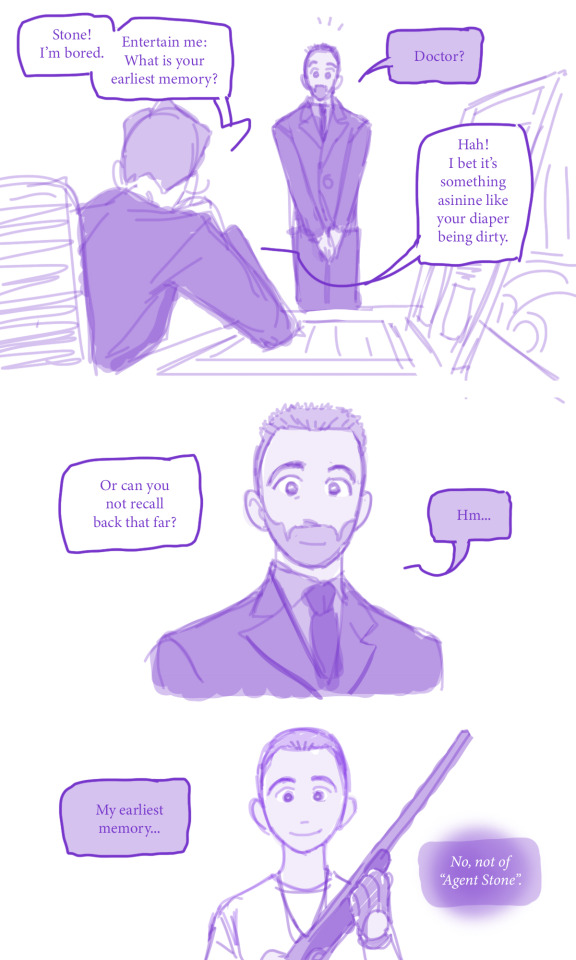
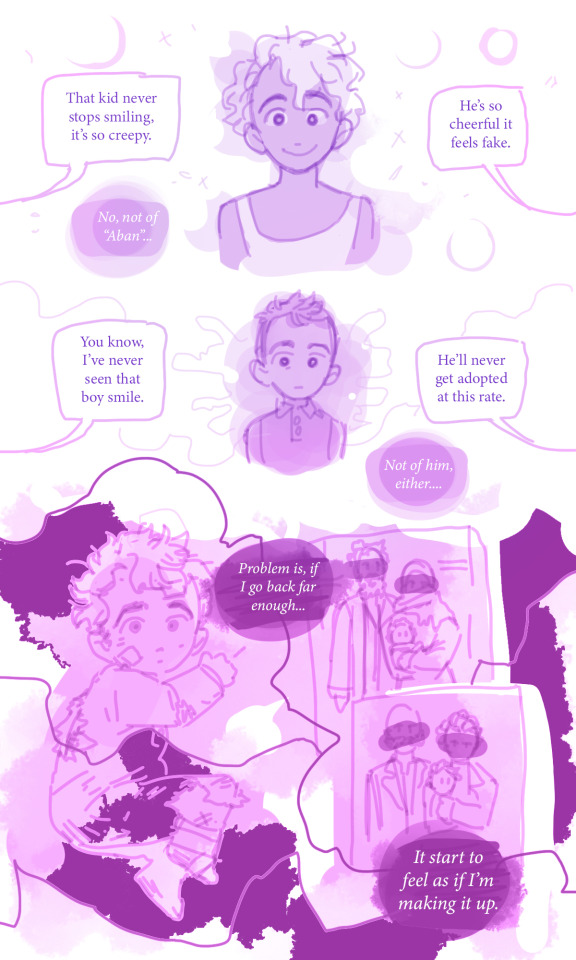
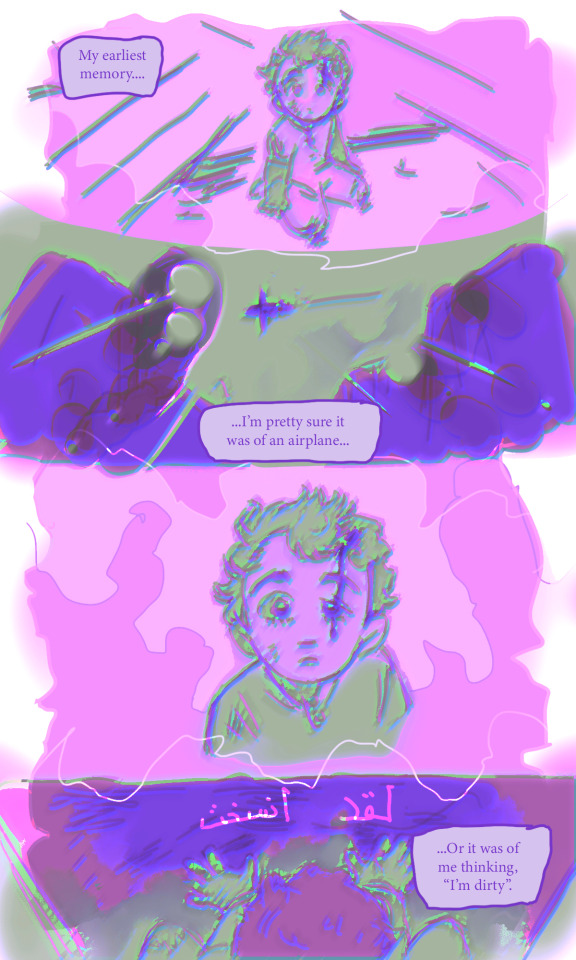
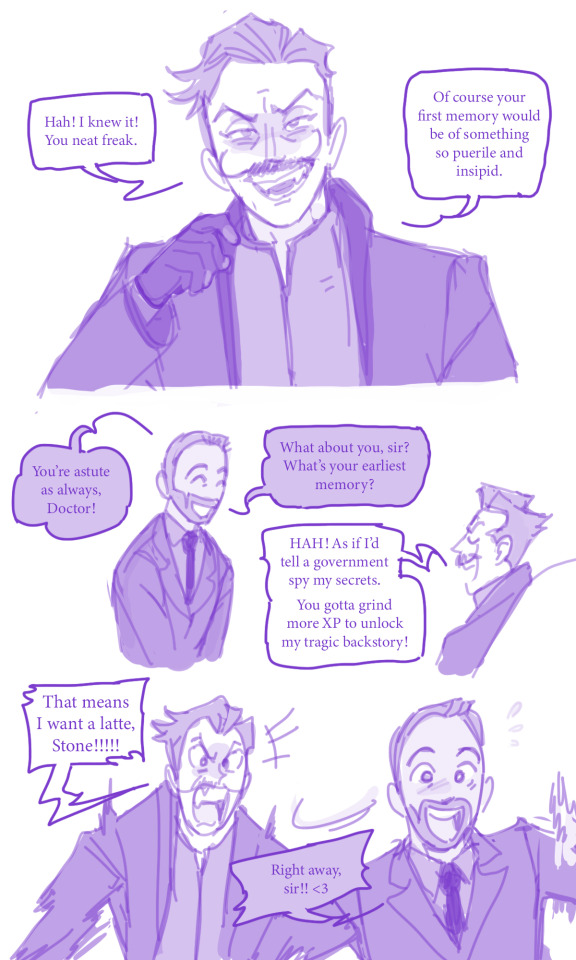
Thinking about the early days of Robotnik and Stone... They're both orphans with a dislike of humanity and a fascination with machines of mass destruction, so I wonder if they ever talked about their personal lives and private traumas.
...Probably not. But maybe they came close?
#stobotnik#karaii art#i've been having a lot of stone thoughts lately#stone's actor is lebanese-canadian so i figure stone could plausibly be an orphan of the lebanese civil war in the 80s#presumably expatriated and indoctrinated into the american military complex#with a history of chronic detachment and a forcibly eroded moral compass#already in the military he turned 19 right before 9/11 happened so fucking rip that must've been hellish for him being of arab descent#all he's ever wanted was to be seen and understood by someone but since he does not even know himself it never happened#he's formed his identity based on what the situation calls for for so long that even he doesn't know who he truly is#his identity as “robotnik's agent stone” is his favourite face thus far though :)
1K notes
·
View notes
Text
I really disagree with the idea that "hua cheng hates everyone but Xie Lian" because it's more that we just hardly ever get to see him interact with someone he doesn't have personal beef with.
like the people in ghost city seem to genuinely like him. he's known to provide protection to ghosts being hunted by cultivators. he literally *ripped out his eye* to protect a group of random humans. he's not an evil demon king with a soft spot for this one guy. he is genuinely kind to people who aren't Xie Lian sometimes, especially people who exist outside heaven's sphere of "respectability" ie ghosts.
is he rude and abrasive? yes, but there is a difference between being nice and being kind. are his morals dubious? yes, but so is heaven; hua cheng just doesn't try to hide it. Hua Cheng is completely sincere and is transparent about all his actions both good and bad which contrasts him from the cover-ups and false politeness of heaven
#i feel like another major point is that he hates the Heavenly Court and the hierarchy it upholds#and the heaven officials by association#he seems to have no beef with rain master which you could argue is bc she helped xl all those years ago#but i feel like it's also bc she rejects the typical god hierarchy by living alongside her people#the same way xl does at the end of the book#also “hc hates everyone but xl” makes xl seem kind of... shallow? like “i don't care that this guy is evil bc he's hot and nice to me”#when both hc and xl's morality is more complex than just good/evil#xl fell in love with hc bc of his sincerity but also his kindness#this was not supposed to be this long#sorry guys#tgcf#hua cheng#tian guan ci fu#hualian#edited some wording at the begininng that didn't make sense
1K notes
·
View notes